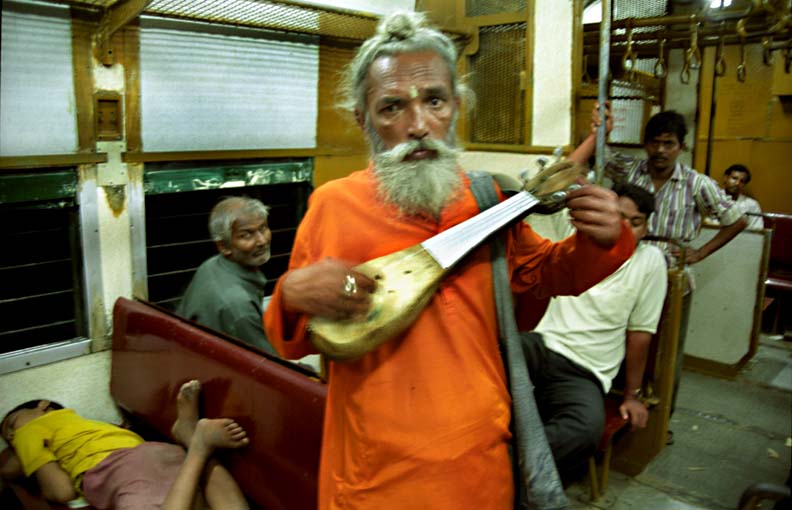Saturday, May 3, 2008
Thursday, May 1, 2008
Baul selling Cellphone
Baul and the ever-compatible Tagore
The urban literati is interested only in baul songs; what's more, the bhadralok perception of baul till date has remained largely romantic - its all about transcendence, nostalgia, mysticism and, the exotic. Lina Chaki writes in Bauler Charandasi:"Baul means an ektara poking the sky and singing in a ‘Rabindrik style’. Baul means mysterious
speech. Baul means
a-social behaviour. Again, Baul means secret ways of sadhana, symbolic words,
songs. These ideas have enveloped the Baul in a colourful mysterious mist for us…. Baul song is an object of
research." [1]
Note the phrase Rabindrik, meaning something linked to the great Rabindranath Tagore and his school (not of thought, but the real school at Santiniketan). It may connote an attitudinal-behavioural way of certain social beings! Anyway, the good thing about this citation is it successfully includes most of the trends and currents in the field and tries to relate that to the 'Great' tradition of Baul scholarship.
[1]translated from Leena Chaki, ‘Bauler Charandasi’, in Banglar Baul Fakir, Calcutta: Pustak Bipani, 1999, p. 85.
How far was Tagore's influence?
Here is what Sasibhusan Dasgupta, who was an expert on Vaisnavism, Buddhism and Tantra, says:"We, for the past few decades, have been influenced by
the ideas propagated by the poet Tagore
in his poems and writings, and also by the writings and speeches of his close
associate, Pandit Ksitimohan Sen; for them Baul represents more a spirit of
unconventional approach to divinity through unassumed love and piety than any
precise religious cult."




